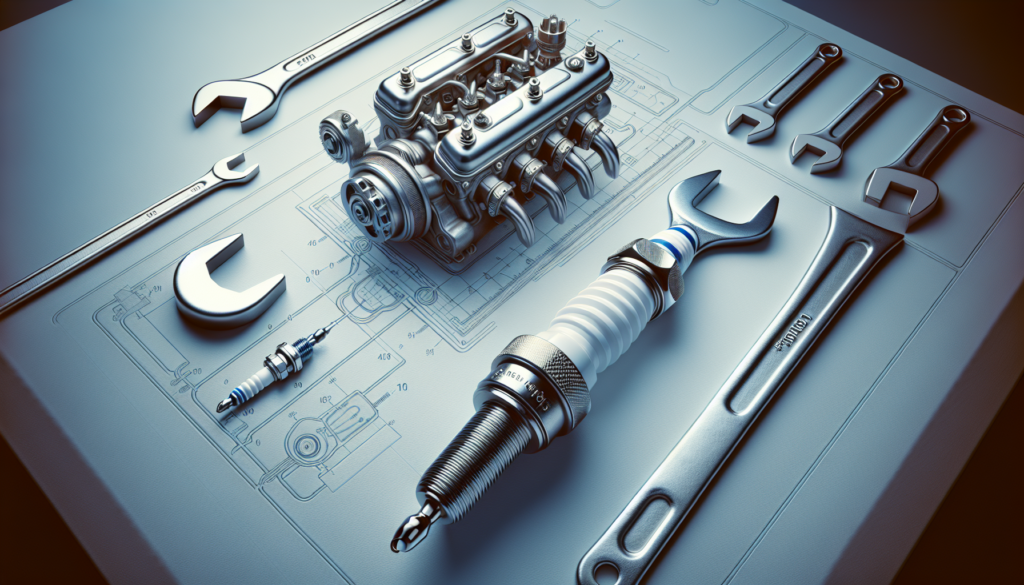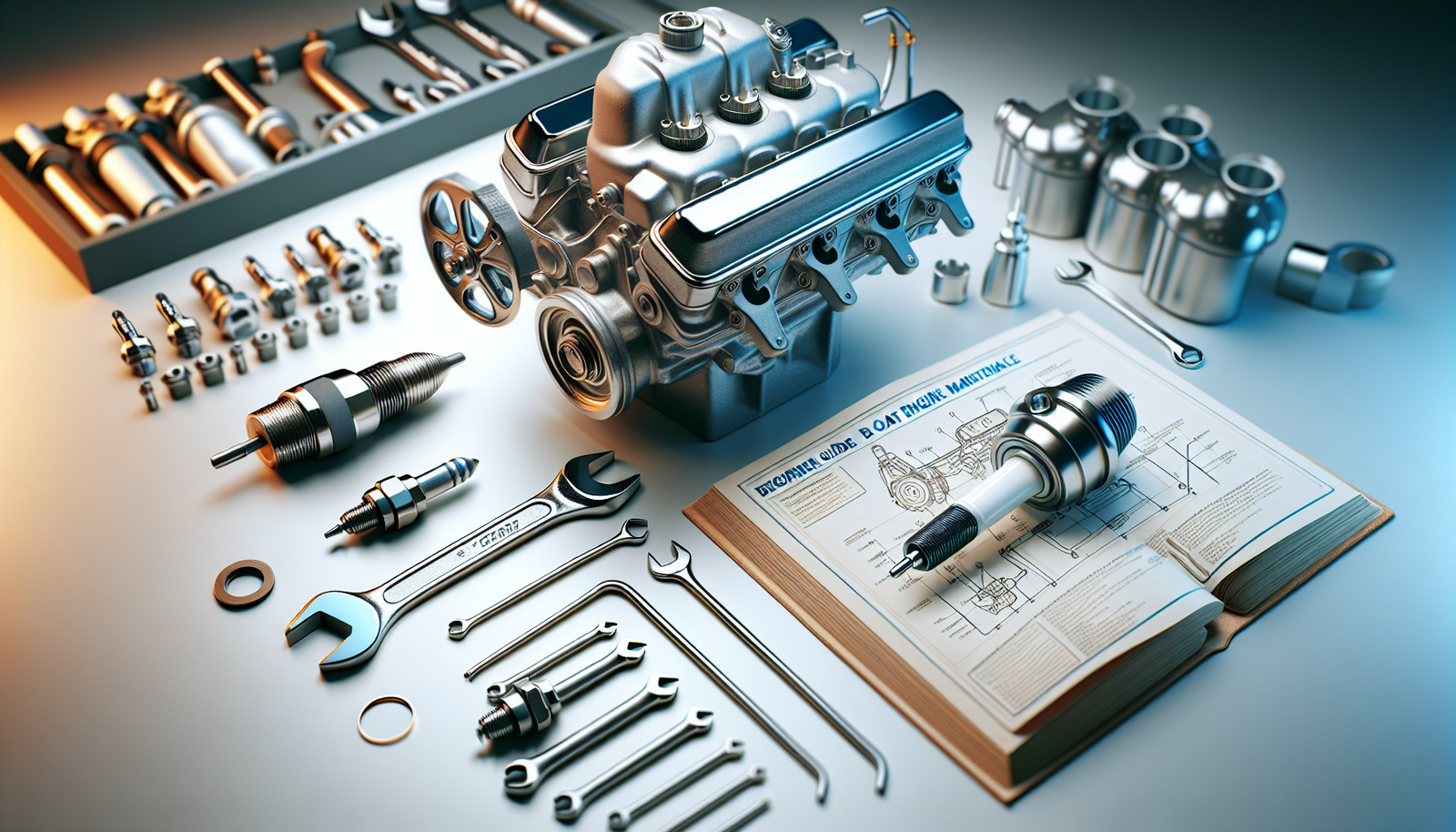
Understanding Your Boat’s Engine
Before embarking on any maritime journey, it’s vital that you get to know your boat’s engine well. Just like any other vehicle, your boat’s engine is the heart of your vessel. Knowing its components and how it works will make your journeys safer and more enjoyable.
Basic Components of a Boat’s Engine
A boat’s engine may have different designs, but it essentially has a set of key components that are common in most motors. These include the block where the cylinders are located, the crankshaft that converts the piston movement, the camshaft that opens and closes valves, and the connecting rods that connect the piston to the crankshaft. Your boat’s engine will also comprise a cooling system and lubrication system, much like a car’s engine.
Different Types of Boat Engines
There are also a variety of boat engines that you can choose from depending upon your requirement. Outboard engines are the ones that are mounted outside the hull of the boat. They’re lightweight, making them suitable for smaller vessels. An inboard engine, on the other hand, is located inside the boat and is preferred for larger boats due to its powerful mechanism. Then there are sterndrive engines which are a hybrid of the outboard and inboard types; they combine the best features of both.
How a Boat Engine Works
The working of a boat’s engine is similar to a car engine; by burning fuel in the cylinders, power is created. This power is then converted into motion through the crankshaft. The amount of available power depends on the number of cylinders installed in the engine. The more cylinders, the more power your boat engine can produce.
Preparation Before Inspection
Before you get down to the mechanics, it’s important to prepare. A little preparation goes a long way in ensuring that you can carry out the maintenance smoothly and correctly.
Gathering Necessary Tools and Equipment
The basic tools needed for boat engine inspection and maintenance include a flashlight, a screwdriver, a wrench, an oil extractor pump, and a set of gloves. You may also need a cleaning solution and a propeller wrench depending on the type of maintenance you plan to do.
Safety Precautions to Consider
Always ensure your boat is secure before starting the maintenance. Pay attention to your surroundings, ensuring no flammable materials are near the engine. Remember to wear safety glasses and gloves, especially while dealing with chemicals or oil.
Finding a Clean, Well-lit Area for Inspection
Choose a clean and well-lit area to inspect your boat’s engine. Good visibility will help you spot potential issues, and a clean workspace will prevent dirt or foreign objects from entering into the engine parts.
Routine Engine Checks
Routine engine checks are crucial to a well-maintained boat engine. They can help you avoid potential engine problems that can lead to expensive repairs.
Performing a Visual Inspection
On a regular basis, take some time out to visually inspect the engine and its components. Look out for leaks, cracks and wear and tear of the parts. A visual check can quickly reveal potential issues that may need further investigation.
Checking Engine Oil
Engine oil is crucial for the proper functioning of your boat engine. It acts as a lubricant and prevents the engine from overheating. Always ensure the engine oil is at the recommended level. If it’s low or appears dirty, it may be time for an oil change.
Inspecting the Propeller
Propellers are vital components that can affect your boat’s performance. Regular visual inspections can reveal any damage or entangled debris. Also, check for propeller shaft damage, as it could negatively influence the vessel’s operation.
Analyzing the Cooling System
The cooling system prevents the engine from overheating while it’s running. The motor could get damaged if the cooling system isn’t functioning well. Regular checks of the coolant levels and the cooling system’s integrity can save your engine from expensive damage.

Cleaning Your Boat’s Engine
An important maintenance routine includes regular cleaning of the engine.
Steps to Clean a Boat Engine
Cleaning a boat’s engine requires a step-by-step approach. Start by removing the surface grime with a basic cleaner. Then spray an approved marine engine cleaner on the engine block, let it sit for the prescribed time, then rinse off.
Cleaning Solutions to Consider
When it comes to engine cleaning, there are various marine engine cleaning agents available in the market. Always ensure that they are environmentally friendly and won’t harm your boat’s engine.
Importance of Regular Cleaning
Regular cleaning prevents a build-up of grime and salt, which can reduce the efficiency of your boat’s engine. It also helps in the early detection of oil leaks and cracks.
Changing Engine Oil
Changing the engine oil is an integral part of boat engine maintenance, just like a car.
Identifying When to Change Engine Oil
Generally, engine oil should be changed after every 100 hours of operation or at least once a year. However, check your owner’s manual for specific advice tailored to your boat’s engine model.
Steps for Changing Engine Oil
You’ll need an oil extractor pump to remove old oil. Once drained, replace the oil filter and pour in the new oil. Always ensure to dispose of old oil and filter properly.
Choosing the Right Oil for Your Engine
Boats need marine-grade oil, which is different from automobile oil. Check your engine’s instructions to find out what type and grade of marine oil it requires.
Maintaining The Fuel System
Fuel system maintenance is a crucial aspect of boat engine care.
Keeping the Fuel Tank Clean
Ensure that the fuel tank is always clean and free from sediment. Regularly inspect the fuel line for any leaks or cracks, and replace it if necessary.
Changing the Fuel Filter
Fuel filters should be replaced regularly to prevent dirt and other impurities from entering the engine. Check your owner’s manual to know the recommended frequency.
Avoiding Water in the Fuel System
Water in the fuel system can damage the engine. Purchasing fuel from trusted sources and keeping the fuel tank full when stored can protect the fuel system from water contamination.
Maintaining the Propeller
A well-maintained propeller ensures that your boat runs smoothly.
How often to Check the Propeller
Your boat’s propeller should be visually inspected every time before you launch. Look for any signs of damage such as cracks, chips or entangled fishing lines.
Steps for Propeller Maintenance
Remove the propeller from time to time, check for any damage, and ensure no fishing line is tightly wound around the propeller shaft. Regularly lubricate the propeller shaft to ensure it doesn’t seize onto the motor.
Replacing the Propeller
If the propeller is severely damaged, you may need to replace it. Always use a propeller that matches your boat engine’s specifications for optimal performance.
Troubleshooting Common Engine Problems
Knowing how to troubleshoot common engine problems can save your day on the water.
Identifying Common Boat Engine Issues
The most common boat engine issues include overheating, vibration, oil pressure problems, and starting issues. Having a basic understanding of these issues will help in identifying the problem and resolving it quickly.
Diagnosing Engine Sounds
Can you hear strange noises coming from the engine? Unusual sounds can indicate problems with the engine. These could be in the form of a ticking, knocking, or whining noise. Being able to connect these sounds to potential issues can significantly aid in early detection and fixing.
When to Consult a Professional
While some minor issues can be resolved by the boat owner, others require expert involvement. If the engine problem persists after your initial troubleshooting, it’s best to consult a professional.
Winterizing Your Boat’s Engine
If you live in an area that experiences harsh winters, you need to winterize your boat’s engine.
The Importance of Winterization
Winterization protects your boat’s engine during the long, idle winter months. It ensures that when boating season arrives, your boat is ready to hit the water without any issues.
Steps for Winterizing a Boat Engine
Winterizing involves several steps changing the engine oil, adding a fuel stabilizer to the fuel system, draining the cooling system, and then filling it with an antifreeze solution. The last step is to disconnect the battery and store it properly.
Storing Your Boat for the Winter
Once your boat’s engine is winterized, the boat ought to be stored properly. It should be covered with a weatherproof boat cover and stored in a dry, sheltered location to protect it from harsh weather elements.
Living with Routine Boat Maintenance
Boat maintenance is a recurring commitment. It’s an integral part of boat ownership that ensures the best performance of your boat.
Creating a Maintenance Schedule
Having a regular maintenance schedule will make sure you stay on top of the important tasks. It also makes it easier to remember when certain tasks are due.
The Importance of Periodic Professional Inspections
While you can do many aspects of boat maintenance yourself, it’s important to have a professional inspect your boat periodically. They have the expertise to spot serious issues that you might overlook.

